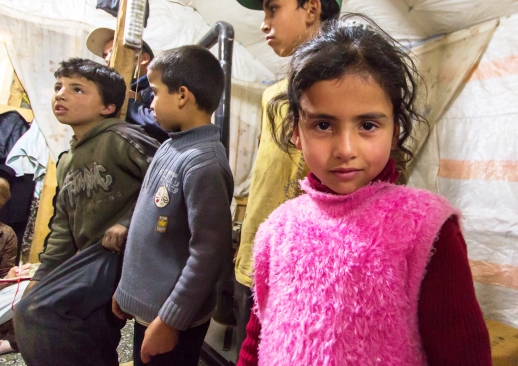The Story of One Refugee
By Shane Bennett
“My dad participated in a military coup in our country. His side won. He got a nice position and life was good for us for a time. Then another coup was launched. His side lost. Instead of a nice position, he got his name on a list of people to be killed for their connection to the previous administration. We all fled for our lives. That’s how I became a refugee. I was five years old.”
“Siddiq” told me his story this evening as I sat with some friends in a cafe near Catania, Sicily. I thought you might want to hear it, particularly in this season as we celebrate the birthday of Jesus, who was both God incarnate and a young refugee.
From West Africa to Libya
“Our family moved from Guinea-Bissau to Nigeria to Ivory Coast,” he went on, “never staying too long in any place. As a young adult I heard that things were pretty good and jobs were to be found in Libya. I’m a painter and they said there was work for painters there. People said the trip was easy, so I paid the money and started the trip across the desert.
“It was terrifying. The driver made us give him our money and phones so robbers wouldn’t get them. When we arrived he told us, ‘I’m not giving you back your money and phones, but you should thank me. My job is to turn you over to kidnappers who will hold you until your parents bail you out. But since I have your money, I’ll just let you go.’”
Friends or Enemies?
“I found a job in Libya and things were going okay. But after Gaddafi was killed, Arab Libyans who didn’t like him began turning on blacks like me. Gaddafi’s pan-Africanism made us his friends and therefore their enemies. It got to the point that sometimes a black person would just be shot in the street by someone driving by.
“About this time, I got a job painting a house for a Libyan. The owner hired me and a Gambian guy for a nice contract. When we finished, we reported to the owner and asked for the four thousand dollars we were owed. The man said he wouldn’t pay. He told us to go away, but we stood our ground. When he went into the house and came out with an AK-47, I said we should go. I pleaded with my Gambian co-worker, telling him this wasn’t worth dying over. He stood firm and said he needed his money. The owner shot him! I ran and jumped over the fence. I don’t know what happened to him.
“That night in my bed I decided to leave.”
From Libya to Italy
“I couldn’t go back across the desert, and I had no other place to go to. So many people had talked about making the crossing from Libya to Europe. I decided I would get a boat to Italy. I made contact with a man who would get me across. He told me to pay the money and I could get on a commercial boat, not an inflatable zodiac raft. I went to the river at the appointed time and place to meet the boat. They lied: It was a raft!
“We were told to get on. I looked up and saw men above the river bank with guns. We had no choice but to get on; they didn’t want us to leave and tell others about the lies. They gave us a little food and water and told us it was a three-hour trip. The GPS broke. The gas ran out. We thought we were going to die. Some of the people on the boat lost their minds. One wanted to puncture the raft and all die together with courage. But amazingly, after three days, we were rescued by an Italian merchant ship.
“Sadly, I was one of only 35 of the 100 on the boat who survived.”
Asylum Granted
“We were taken to Sicily and I was placed in a home with six other migrants. We each began to work on our applications for asylum. Somehow, I don’t know why, the others’ applications were all rejected. Only I have been given refugee status. I can work throughout Italy, although there really aren’t any jobs.
“At least I’m alive.”
Many More Like Siddiq
Join me in thanking God for preserving this man’s life. Although from a Muslim background, Siddiq is finding himself more and more surrendered to Jesus. Ask God with me to move through Siddiq to extend the life of Jesus to many, many more Muslims.
To further inform yourself about the situation that millions like Siddiq face and to consider how followers of Jesus should wisely respond, please take advantage of this offer to download and read Facts, Fears, and Faith in a Migrant Crisis, by Patrick Johnstone and Dean Merrill. This digital single is excerpted from their upcoming book, Serving God in a Migrant Crisis: Ministry to People on the Move to be published by GMI Books in 2016.
» Want to take action now? Go to We Welcome Refugees to learn how your church can get involved, particularly in recognizing National Refugee Sunday this coming weekend (December 13).
» You can also shoot me an email so we can scheme and dream together for the millions of “Siddiqs” waiting to meet Jesus, or add your comments below or on Facebook page.


